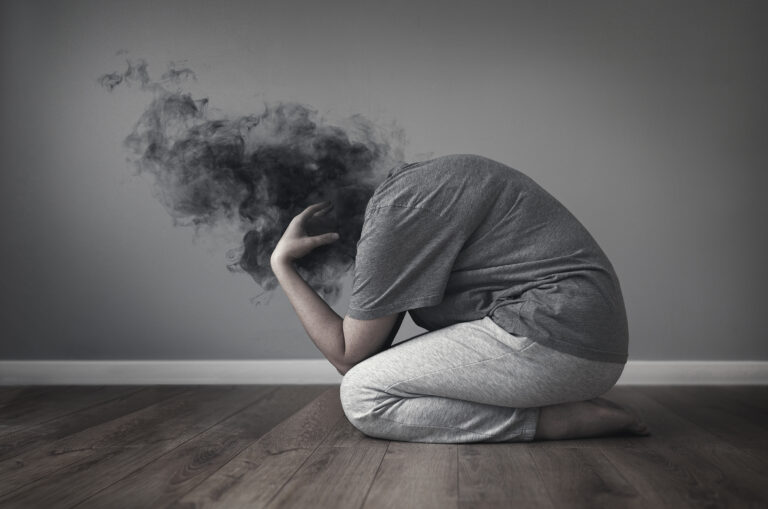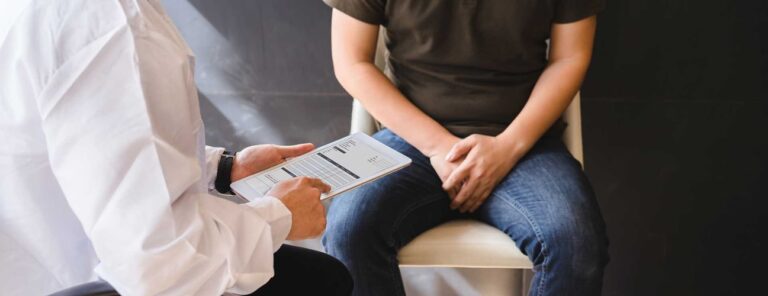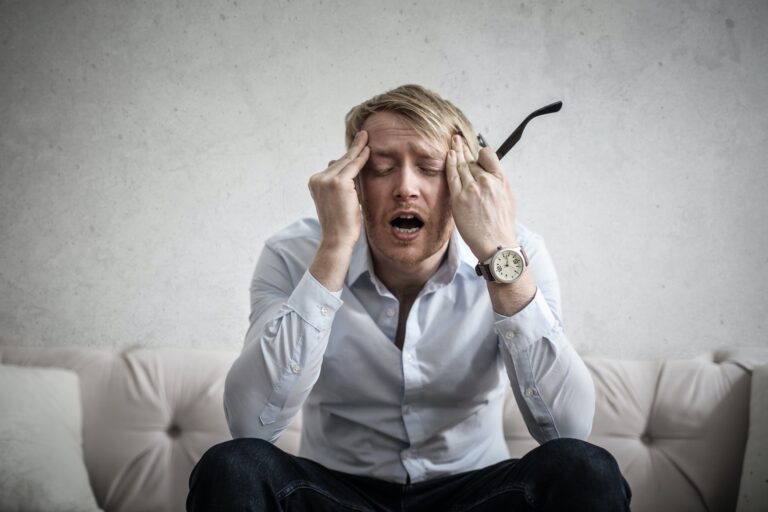Navigating Men’s Health: Understanding Penis Size and Confidence

Factors Affecting Male Body Image and Self-Esteem
Body image and self-esteem are significant aspects of men’s overall well-being. However, various factors can influence how men perceive their bodies and their level of self-confidence. Cultural ideals of masculinity, media influence, peer pressure, and personal experiences all play a crucial role in shaping male body image and self-esteem.
In today’s society, cultural expectations often emphasize a lean and muscular body as the epitome of male attractiveness. These societal ideals can lead men to feel self-conscious about their physical appearance, particularly if they do not meet these standards. Media, including advertisements, movies, and social media, further reinforce these ideals by portraying unrealistic and often digitally enhanced images of male bodies. These unattainable standards contribute to body dissatisfaction and may negatively impact self-esteem.
Moreover, peer pressure can significantly impact male body image and self-esteem. Men may compare themselves to their peers, feeling inadequate if they believe they do not measure up to societal or social expectations. This comparison can be intensified with the prevalence of social media, where people highlight their best features and accomplishments. Constant exposure to others’ seemingly perfect lives can create unrealistic standards for men to strive for, further exacerbating body image concerns.
Personal experiences, such as bullying, teasing, or body shaming, can also profoundly affect male body image and self-esteem. Negative comments or experiences can contribute to feelings of shame, embarrassment, and self-doubt. These experiences can stick with men throughout their lives, impacting their confidence and overall well-being.
Understanding the factors that affect male body image and self-esteem is essential in promoting healthier attitudes towards oneself. By acknowledging the societal impact, media influence, peer pressure, and personal experiences can have on men’s perceptions, we can work towards fostering body positivity and improving self-confidence among men.
Understanding the Importance of Self-Confidence in Men’s Health![]()
Self-confidence plays a crucial role in men’s overall health and well-being. It goes beyond just having a positive self-image; it affects various aspects of a man’s life, including his relationships, career, and mental health. When a man has confidence in himself and his abilities, he is more likely to take risks, pursue his goals, and handle challenges with resilience and determination. This can lead to increased success, satisfaction, and a higher quality of life.
Research has shown that self-confidence is closely linked to mental health. Men who have low self-confidence often experience higher levels of stress, anxiety, and depression. They may struggle with negative thoughts and feelings of inadequacy, which can hinder their ability to connect with others and enjoy fulfilling relationships. On the other hand, men who possess self-confidence have been found to have better emotional well-being, higher levels of self-esteem, and improved overall life satisfaction.
In addition to mental health, self-confidence also impacts physical health. Studies have indicated that individuals with higher self-confidence are more likely to engage in healthy behaviors such as regular exercise, balanced eating, and seeking medical help when needed. They are less likely to engage in risky behaviors such as substance abuse or engaging in unsafe sexual practices. This highlights the importance of self-confidence not only for mental well-being but also for maintaining a healthy lifestyle.
Overall, understanding the significance of self-confidence in men’s health is crucial. It is not just a superficial trait; it has tangible effects on a man’s mental and physical well-being. Promoting and fostering self-confidence is essential for men to lead happier, healthier lives.
Examining the Cultural and Media Influences on Body Image
In today’s society, it is difficult to deny the profound impact that cultural and media influences have on our perception of body image. From television shows and movies to social media platforms, we are constantly bombarded with unrealistic and idealized representations of the human body. As a result, both men and women are often left feeling inadequate and dissatisfied with their own appearance.
Research has shown that exposure to these types of media can significantly contribute to body dissatisfaction and low self-esteem in individuals. One study found that frequent consumption of media featuring thin and muscular ideals was associated with higher levels of body dissatisfaction among men (Harrison, 2015). Moreover, media portrayals of an unattainable and narrow standard of beauty can perpetuate harmful stereotypes and reinforce societal pressures to conform.
Interestingly, the cultural and media influences on body image differ across cultures. For example, in Western societies, the ideal masculine body is often depicted as lean, muscular, and chiseled. On the other hand, some non-Western cultures may emphasize a larger body size as a symbol of wealth and masculinity. These variations highlight the complex interplay between cultural values, media representation, and body image perceptions.
It is important to recognize and critically evaluate the cultural and media influences on body image. By understanding the ways in which these factors shape our perceptions, we can begin to challenge and redefine societal standards of beauty. Through promoting diversity and inclusivity in media representation, we can empower individuals to embrace their unique attributes and cultivate a positive body image.
Debunking Myths: The Truth About Penis Size and Sexual Satisfaction

When it comes to sexual satisfaction, there are many myths and misconceptions that circulate, especially when it comes to penis size. It’s important to separate fact from fiction and provide accurate information to help debunk these myths. Researchers have found that penis size has little correlation with sexual satisfaction or performance. In fact, studies consistently show that the majority of women report that penis size is not the most important factor in their sexual experiences. Rather, factors such as emotional connection, communication, and overall sexual compatibility tend to contribute more significantly to sexual satisfaction.
Moreover, it’s worth noting that the average erect penis size ranges from about 5.1 to 5.7 inches in length and 4.5 to 4.7 inches in circumference. This falls within the normal range of variation for penile measurements. It’s important to remember that every person’s body is unique and that there is no “standard” or ideal penis size. Instead of focusing on measurements, it’s more helpful to focus on enhancing overall sexual experiences through open communication, exploring different techniques, and prioritizing emotional well-being. By debunking these myths and providing accurate information, we can help individuals move away from unnecessary anxiety and pressure and promote a healthier and more satisfying sexual life.
Sources:
– Veale, D., Miles, S., Bramley, S., Muir, G., & Hodsoll, J. (2015). Am I normal? A systematic review and construction of nomograms for flaccid and erect penis length and circumference in up to 15,521 men. BJU International, 115(6), 978-986.
– Herbenick, D., Schick, V., Reece, M., Sanders, S., Dodge, B., & Fortenberry, J. D. (2014). Erect penile length and circumference dimensions of 1,661 sexually active men in the United States. The Journal of Sexual Medicine, 11(1), 93-101.
Enhancing Body Positivity: Embracing Your Unique Attributes
Body positivity is an essential aspect of overall well-being, and embracing our unique attributes is crucial in fostering a positive self-image. It is important to remember that beauty comes in all shapes and sizes, and each individual is unique in their own way. By embracing our unique attributes, we can develop a greater sense of self-acceptance, which can have a transformative impact on our body positivity journey.
One way to enhance body positivity and embrace our unique attributes is by reframing the way we think about beauty standards. Society often imposes unrealistic ideals of beauty, which can lead to feelings of inadequacy and self-doubt. Instead of comparing ourselves to these standards, we should focus on celebrating our individuality and recognizing the beauty within ourselves. By shifting our perspective and understanding that there is no one-size-fits-all definition of beauty, we can begin to appreciate and love our bodies for what they truly are.
Exploring the Connection Between Penis Size and Masculinity
Understanding the connection between penis size and masculinity is a complex and often misunderstood topic. While society and media often perpetuate the notion that larger is better, it is important to separate these societal expectations from the reality of what actually defines masculinity.
Firstly, it is essential to understand that penis size varies greatly among individuals and does not solely determine one’s masculinity. In fact, studies have shown that there is no correlation between penis size and a man’s ability to satisfy their partner sexually. According to a comprehensive study published in the British Journal of Urology International, researchers concluded that “penile size is not correlated with sexual satisfaction or relationship quality.” This research finding debunks the myth that bigger is always better.
Moreover, masculinity is a multifaceted concept that encompasses much more than physical attributes. Traits such as confidence, communication skills, emotional intelligence, and respect for oneself and others are all essential components of masculinity. Focusing solely on penis size overlooks these crucial aspects and can lead to unnecessary anxieties and insecurities. Rather than fixating on size, it is important for men to embrace their unique attributes, develop their self-confidence, and foster healthy relationships based on open communication and emotional well-being.
The Role of Communication in Building Sexual Confidence

Communication plays a crucial role in building sexual confidence for men. Open and honest communication with a partner can help alleviate anxieties and insecurities, leading to a more fulfilling and satisfying sexual experience. When both partners feel comfortable discussing their needs, desires, and concerns, they can work together to find solutions and explore new avenues of pleasure.
One important aspect of communication in building sexual confidence is discussing boundaries and consent. By establishing clear boundaries and discussing consent, both partners can feel safe and respected during intimate moments. This allows for a deeper level of trust and opens up avenues for experimentation and exploration without fear of judgment or discomfort.
Effective communication also involves discussing sexual preferences and desires. By openly expressing what each partner enjoys and desires in the bedroom, they can work together to enhance their sexual experiences. This may involve trying new techniques, exploring fantasies, or incorporating different forms of stimulation.
Furthermore, discussing any concerns or insecurities surrounding body image can help create a more supportive and understanding environment. By addressing these issues, partners can offer reassurance and support, fostering a sense of acceptance and self-confidence in both individuals.
Overall, communication is the key to building sexual confidence. By creating an open and non-judgmental space for discussion, partners can cultivate trust, enhance intimacy, and explore their desires in a healthy and fulfilling way.
Strategies for Overcoming Insecurities and Improving Body Confidence
Improving body confidence and overcoming insecurities can be a complex and personal journey. However, there are several effective strategies that can help individuals navigate this process and develop a healthier sense of self-esteem. One important approach is to challenge negative self-talk and replace it with positive affirmations. By consciously recognizing and reframing negative thoughts about their bodies, individuals can begin to cultivate a more positive and compassionate inner voice.
Another valuable strategy is to focus on overall wellness rather than solely on physical appearance. Engaging in regular physical activity, eating a balanced diet, and prioritizing self-care can all contribute to a sense of well-being and improve body confidence. Making these lifestyle changes can have a positive impact not only on physical health but also on mental and emotional well-being.
It is worth noting that seeking support from trusted friends, family members, or professionals can also be instrumental in overcoming insecurities and improving body confidence. Surrounding oneself with a supportive and understanding network can provide encouragement and a safe space for self-expression. Additionally, talking to a therapist or counselor who specializes in body image issues can offer valuable guidance and techniques for building self-confidence.
Remember, building body confidence is a process that takes time and patience. By implementing these strategies and seeking support, individuals can gradually shift their mindset and embrace a more positive view of themselves. It is important to remember that everyone is unique, and true beauty comes from within, not external appearances.
Promoting Emotional Well-being: Mental Health and Body Image
Mental health plays a crucial role in our overall well-being, and it is closely intertwined with our body image. Poor mental health can have a significant impact on how we perceive our bodies, leading to negative self-image and decreased self-esteem. On the other hand, promoting emotional well-being can have a positive effect on our mental health and body image.
Research has shown that individuals with poor mental health are more likely to experience body dissatisfaction and engage in unhealthy behaviors such as extreme dieting or excessive exercise. According to a study published in the Journal of Abnormal Psychology, individuals with higher levels of depression and anxiety are more likely to have negative body image perceptions. This suggests that addressing mental health concerns can be a crucial step in improving body image and self-esteem.
It is important to recognize the interconnectedness between mental health and body image and to address both aspects to achieve overall well-being. By prioritizing mental health and seeking professional help when needed, individuals can work towards promoting a positive body image and nurturing emotional well-being. Taking care of our mental health not only benefits our overall health but also helps us develop a healthy relationship with our bodies and enhances our self-esteem.
The Impact of Pornography on Body Image and Sexual Confidence
The consumption of pornography has become increasingly prevalent in today’s society, shaping perceptions of body image and sexual confidence. While it is important to recognize that not all individuals who view pornography experience negative effects, research suggests that there can be a link between pornography exposure and body dissatisfaction, as well as unrealistic expectations regarding sexual performance.
Studies have indicated that frequent exposure to pornography may contribute to a distorted perception of what constitutes a “normal” or “ideal” body, particularly for men. This can lead to feelings of inadequacy or insecurity, as individuals compare their own bodies to the seemingly flawless physiques often depicted in explicit material. Additionally, the portrayal of exaggerated sexual encounters and unrealistic performances in pornography can create unrealistic expectations around sexual performance, potentially leading to anxiety or a diminished sense of self-confidence.
Given these potential consequences, it is important to promote a balanced understanding of sexuality and body image for individuals consuming pornography. By fostering open and informed discussions about the differences between fantasy and reality, we can help individuals recognize that the performers in pornography are actors, and the depictions are often scripted and edited to enhance the viewing experience. Encouraging a healthy and realistic perspective on sexuality can contribute to improved body image and sexual confidence, ultimately leading to enhanced overall well-being. However, it is crucial to approach this topic with sensitivity and respect, as each individual’s response and experiences may vary.
Understanding the Psychological Effects of Body Dysmorphic Disorder
Body dysmorphic disorder (BDD) is a psychological condition characterized by a preoccupation with perceived flaws in one’s physical appearance. Individuals with BDD often experience significant distress and impairment in their daily functioning. This disorder affects both men and women, with some studies suggesting that its prevalence may be higher in men than previously believed.
The psychological effects of BDD are wide-ranging and can have a profound impact on an individual’s well-being. Those affected by BDD may experience extreme self-consciousness, shame, and embarrassment about their perceived flaws. They may constantly compare themselves to others and feel a sense of inadequacy or inferiority. This can lead to social withdrawal, isolation, and difficulties in forming and maintaining relationships. Additionally, individuals with BDD may develop anxiety and depression, further compounding their psychological distress. The constant focus on their appearance can consume their thoughts and lead to obsessive-compulsive behaviors, such as excessive grooming or seeking reassurance from others.
Empowering Men: Tips for Boosting Self-Confidence and Body Image
Building self-confidence and improving body image are important aspects of men’s overall well-being. While societal pressures and unrealistic ideals often contribute to low self-esteem, there are effective strategies that can help empower men to feel more confident in their own skin.
Here is a table summarizing tips for empowering men to boost self-confidence and body image:
| Tips for Empowering Men | Description |
|---|---|
| Define your goals | Narrow down on exactly what it is you want to achieve. This will help you take control of your self-confidence and get over the feeling that you are drowning in unfulfilled ambition 1. |
| Focus on your assets | Focus on intellectual, physical, and personal assets as part of a balanced approach to a self-review 2. |
| Improve your social skills | Practice talking to strangers in different situations to overcome social anxiety 1. |
| Take care of your body | Exercise regularly, eat a balanced diet, and get enough sleep to improve your physical health and boost your self-confidence 3. |
| Dress well | Dressing well can make you feel more confident and attractive 1. |
| Practice self-care | Take time to do things that make you happy and relaxed, such as reading, meditating, or taking a walk 4. |
| Surround yourself with positive people | Surround yourself with people who support and encourage you 5. |
One important tip for boosting self-confidence is to focus on self-care and overall health. By engaging in regular physical activity and adopting a balanced and nutritious diet, men can improve their physical appearance and enhance their sense of self-worth. Exercise has been shown to release endorphins, which can improve mood and self-perception. Additionally, taking care of one’s body through proper grooming and hygiene can also contribute to a positive self-image.
Another key aspect in building self-confidence is positive self-talk. The way we talk to ourselves directly affects our self-esteem and body image. By challenging negative thoughts and replacing them with positive affirmations, men can gradually shift their mindset towards self-acceptance and appreciation. It may be helpful to seek professional guidance or therapy to learn techniques to reframe negative thoughts and build a healthier self-perception.
Through a combination of self-care, positive self-talk, and professional guidance, men can take active steps to boost self-confidence and improve body image. It’s important to remember that everyone is unique and possesses their own individual beauty and worth. By embracing and accepting oneself, men can empower themselves and experience greater fulfillment in their lives.
Seeking Professional Help: Therapy and Counseling for Body Image Issues![]()
Therapy and counseling can play a crucial role in helping individuals navigate and overcome body image issues. These professional interventions provide a safe and supportive environment where individuals can explore the underlying factors contributing to their negative body image and develop strategies for building self-confidence and acceptance.
Research has consistently shown the effectiveness of therapy and counseling in addressing body image concerns. A meta-analysis conducted by Olivardia et al. (2018) found that cognitive-behavioral therapy (CBT) was particularly successful in improving body image and reducing body dissatisfaction. CBT focuses on challenging negative thoughts and beliefs, promoting healthier attitudes towards one’s body, and developing coping mechanisms for managing distress related to body image.
Furthermore, seeking professional help offers individuals the opportunity to gain invaluable insights and perspectives from experienced mental health professionals. Therapists and counselors utilize evidence-based techniques, such as mindfulness practices, motivational interviewing, and acceptance and commitment therapy, to help individuals build resilience and cultivate self-compassion. Through personalized treatment plans and tailored interventions, therapists guide individuals towards self-discovery and empower them to embrace their unique attributes.
It is important to remember that seeking therapy or counseling for body image issues is not a sign of weakness, but rather a courageous step towards self-improvement and emotional well-being. By working with professionals who specialize in body image concerns, individuals can embark on a journey of self-discovery, self-acceptance, and self-love. Therapy and counseling serve as invaluable resources in the pursuit of improved body confidence and overall mental health.
Building Healthy Relationships: Open Communication and Body Acceptance
Open communication and body acceptance are vital for building healthy relationships, especially when it comes to intimate connections. Many individuals struggle with body image insecurities, which can hinder their ability to feel comfortable and confident in their own skin. When partners engage in open and honest discussions about their feelings and insecurities, it creates a safe space for vulnerability and support.
Research has shown that practicing open communication in relationships leads to greater satisfaction and commitment. According to a study published in the Journal of Social and Personal Relationships, couples who felt comfortable discussing their physical insecurities experienced higher levels of relationship satisfaction and intimacy. This highlights the importance of creating an environment where both partners can openly share their thoughts and concerns without fear of judgment.
Body acceptance plays a crucial role in fostering a positive relationship dynamic. It involves embracing and appreciating oneself, as well as accepting and appreciating one’s partner, irrespective of societal standards or personal insecurities. By cultivating a sense of body acceptance, partners can focus on the emotional and intellectual connection rather than solely on physical aspects. This allows for a deeper understanding and connection, as it removes unnecessary pressure and allows both individuals to feel valued and accepted for who they truly are.
In the next section, we will explore strategies and techniques that can help couples cultivate open communication and body acceptance within their relationships. These techniques will provide practical guidance on fostering a supportive and loving environment, where individuals can feel comfortable and confident in expressing their thoughts, desires, and insecurities.
Embracing Self-Love and Self-Care: Holistic Approaches to Men’s Health
Self-love and self-care are essential components of overall health and well-being, and these principles are just as important for men as they are for women. In today’s society, men often face pressures to conform to certain societal standards of masculinity, which can have negative effects on their self-image and self-esteem. However, by embracing self-love and self-care, men can break free from these constraints and foster a positive relationship with themselves.
One aspect of self-love and self-care is recognizing and appreciating one’s unique attributes. Every individual is different, and it is important for men to embrace their own strengths, talents, and physical features. This can be achieved through positive self-talk, mindfulness practices, and surrounding oneself with supportive and uplifting individuals. By focusing on self-acceptance and self-appreciation, men can cultivate a deep sense of self-worth, which in turn can positively impact their overall mental and emotional well-being.
Moreover, self-care goes beyond just accepting oneself—it also involves engaging in activities that promote physical, mental, and emotional health. Engaging in regular exercise, eating a balanced diet, getting enough sleep, managing stress, and prioritizing leisure activities are all integral parts of self-care. It is crucial for men to recognize that taking care of their bodies and minds is not a luxury, but a necessity. By investing time and effort in their own well-being, men can enhance their self-esteem and lead happier and more fulfilling lives.
How can I improve my body confidence as a man?
There are several strategies you can try to improve your body confidence. These include practicing self-care, focusing on your unique attributes, seeking professional help if needed, and building healthy relationships based on open communication and body acceptance.
Is there a link between penis size and masculinity?
While society often associates penis size with masculinity, it is important to remember that masculinity is not solely defined by physical attributes. Masculinity is a complex combination of various traits and characteristics, and should not be solely linked to penis size.
Does pornography have an impact on body image and sexual confidence?
Yes, pornography can have an impact on body image and sexual confidence. It often portrays unrealistic body standards and exaggerated sexual experiences, which can lead to feelings of inadequacy or dissatisfaction. It is important to approach pornography with a critical mindset and understand that it does not reflect real-life experiences.
How can I overcome insecurities and improve my body confidence?
Overcoming insecurities and improving body confidence takes time and effort. Some strategies that may help include practicing self-compassion, challenging negative thoughts, surrounding yourself with supportive individuals, and engaging in activities that make you feel good about yourself.
What is body dysmorphic disorder and how does it affect men?
Body dysmorphic disorder (BDD) is a mental health condition characterized by obsessive preoccupation with perceived flaws in one’s appearance. It can affect men by causing distress, impairing daily functioning, and leading to negative body image and self-esteem. Seeking professional help, such as therapy or counseling, is important for managing BDD.
How can I boost my self-confidence and body image?
Boosting self-confidence and body image can be achieved through various approaches. Some tips include practicing self-care and self-love, setting realistic goals, challenging negative thoughts, seeking support from loved ones, and focusing on your strengths and unique attributes.
How does open communication contribute to building healthy relationships and body acceptance?
Open communication is essential in building healthy relationships and promoting body acceptance. By openly discussing insecurities, concerns, and expectations, partners can support and validate each other’s feelings. This fosters a safe and accepting environment, where both individuals can feel comfortable and valued.
What are some holistic approaches to men’s health?
Holistic approaches to men’s health involve addressing physical, mental, and emotional well-being. This can include practicing self-care, engaging in regular exercise, maintaining a balanced diet, seeking therapy or counseling when needed, practicing stress management techniques, and promoting a positive body image and self-esteem.






